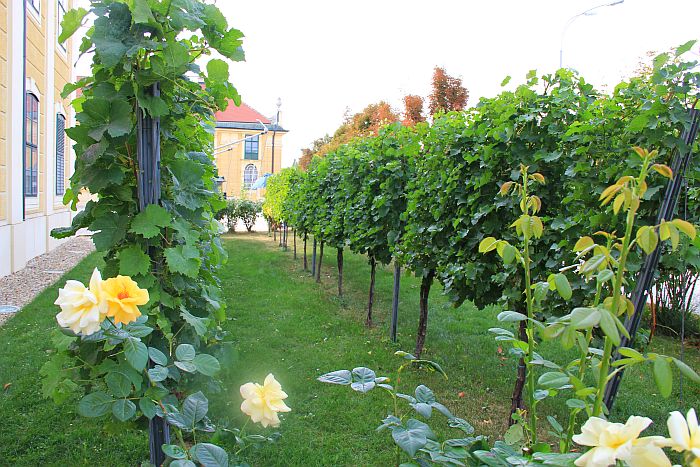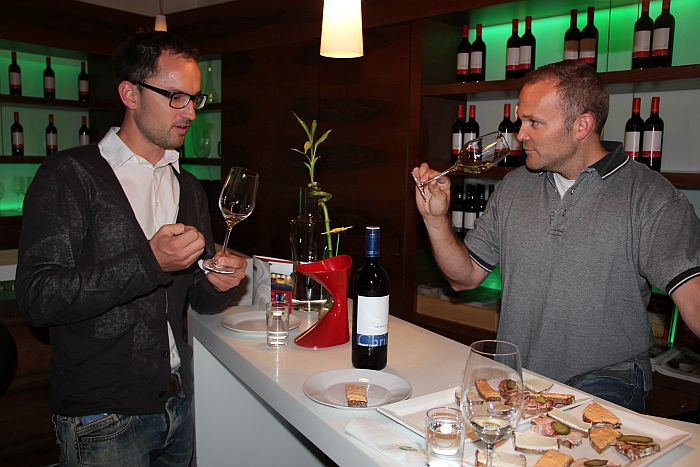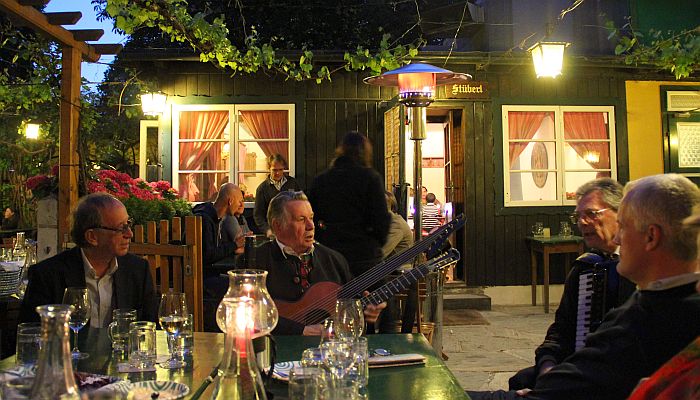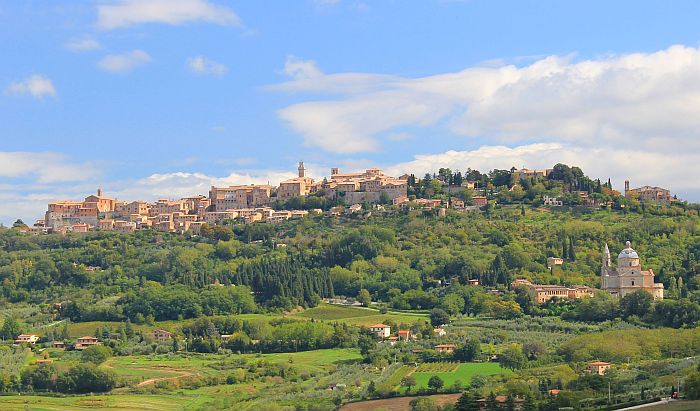Like every day, people passes him carelessly. Me as well, I have never seen him before and I have been very often in Vienna. But very close to the main entrance to Schoenbrunn Palace a few vines have still hidden behind the colorful rose bushes.
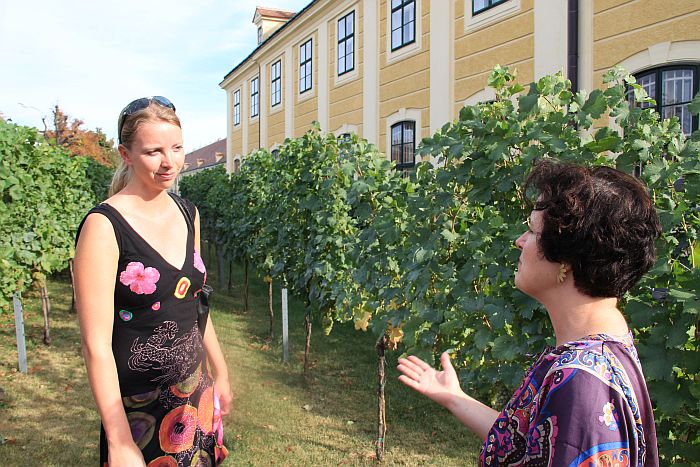
Viennas wine: The “Gemischter Satz”
But Lisa Zeiler knows him. The tour guide shows me the hidden vineyards of my favorite city and has brought me to Schönbrunn Palace first. A cooperation of five wineries called WienWein planted just a few rows of vines. Between the main entrance and underground station you will find the grapes of the “Wiener Gemischter Satz”. As it was common in the Middle Ages the winegrowers planted different varieties here and this year Grüner Veltliner, Riesling and burgundy will be harvested together. Previously, the wine farmers ensure against diseases of individual grape varieties, today, the five wineries revive the old tradition again.
Wine has a long tradition in the Austrian capital. Even the Romans cultivated the vines within the city walls, in the Middle Ages the consumption was one liter per day per person. “But that was more of a sour drink” Lisa Zeiler grimaces. “The wine was compared to the contaminated water the healthier alternative.”
“Viennas ‘Gemischter Satz’ is the most important white wine in Vienna,” says Rainer Christ. I visit the young wine maker in his vineyard at the Bisamberg and try the Mixed Version. Delicious! “At the Orangerie in the castle garden, there are more grapes,” he tells me. I’ll check the next day.
Viennas wines are hip
“Today, it is hip to drink Viennese wine,” says Nikolaus Gräser from the Vienna tourist office. He appreciates the peppery taste of the Grüner Veltliner. Many Viennese wine areas were reclaimed, the local mountains of the city are almost fully booked. More than 700 hectares are managed from over 230 winemakers at Kahlenberg, Bisamberg and Nussberg.
Traditionally, you drink Viennese wine in wine taverns called Heurigen. The tavern law from the 18th century allows wine makers pour out wine from their own production. Tourist restaurants offers wine whole year round, but the real wine makers open only on special days. “Since the 50s, we open in the odd months,” says Rainer Christ. Then he offers his own wine and typical delicacies from the buffet.
After a fun evening at the Heurigen I walk the next day to Schwarzenbergplatz near the Belvedere Palace. Inconspicuous behind a low wall right next to the tram station still hides a tiny vineyard with 60 vines. Every year it is a big event, when the mayor is reaping the grapes. There are always plenty there, because just like at the Schönbrunn castle nobody notices the small vineyard.
Find further information at www.wien.info.
Note: This trip was supported by the Vienna Tourism Office. The report is intended solely as our own opinion.

